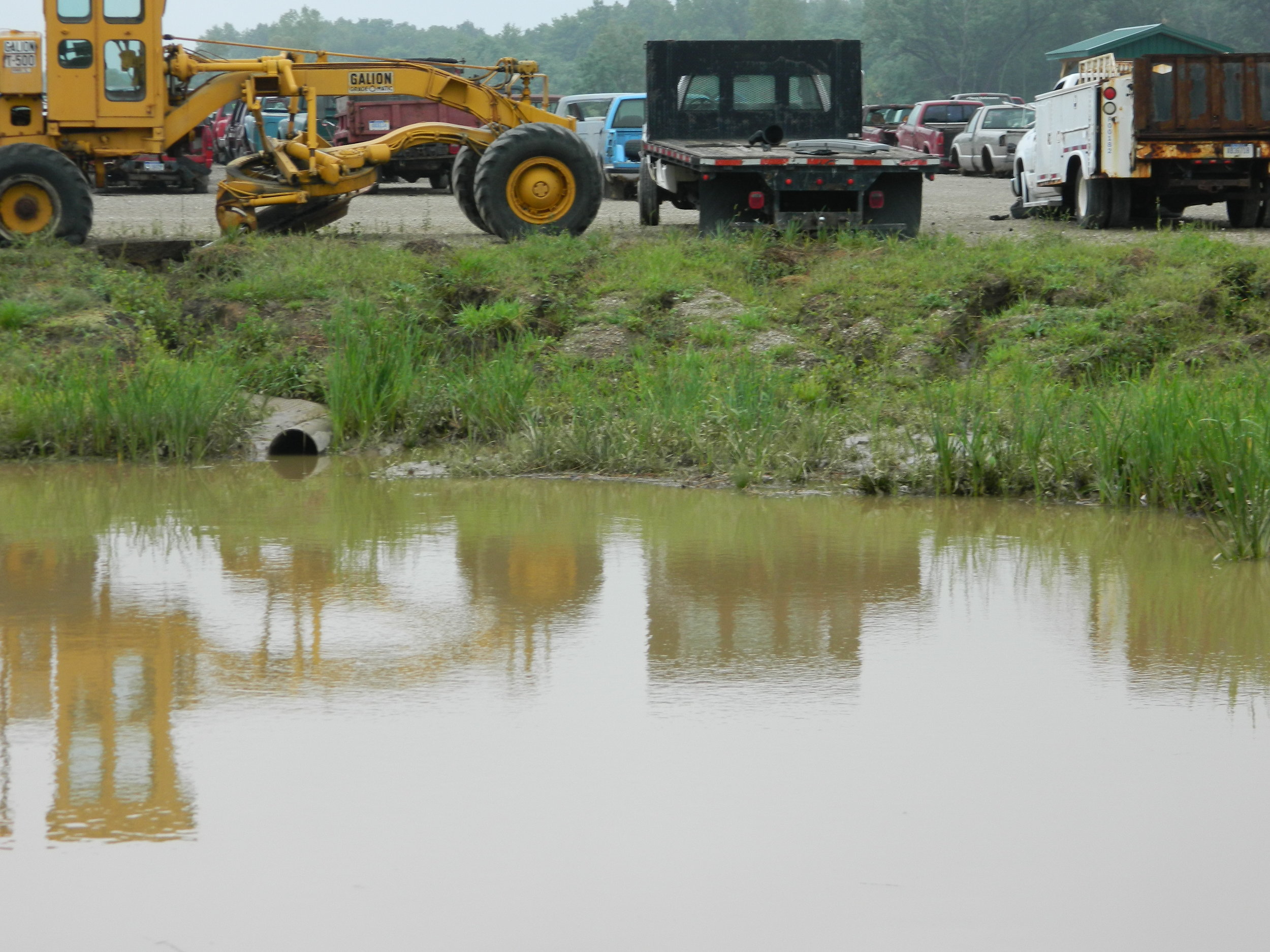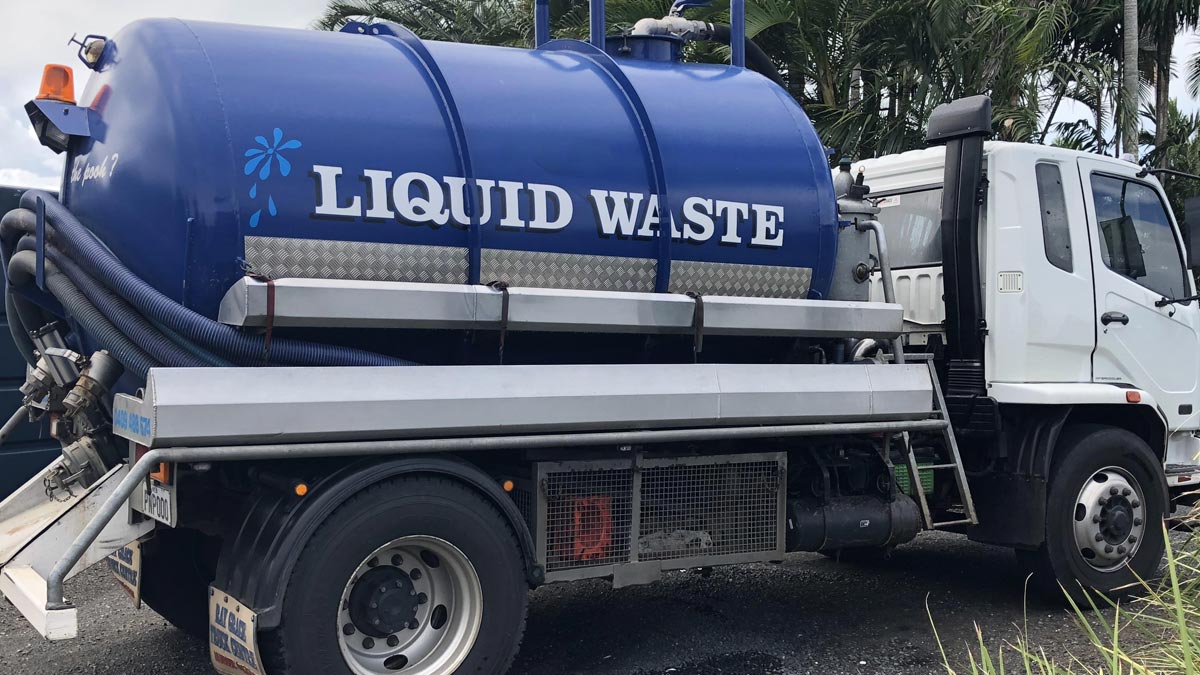Understanding the Comprehensive Process of Fluid Waste Disposal: Best Practices and Environmental Impact Factors To Consider
The management of fluid garbage disposal is a complex issue that needs a comprehensive understanding of different best practices and their connected ecological impacts. From the kinds of liquid waste created to the techniques utilized for collection, therapy, and last disposal, each action plays a critical duty in safeguarding ecological communities and public wellness. As governing standards evolve and innovation advances, the conversation around these procedures becomes significantly significant. What implications do these adjustments hold for future sustainability efforts, and exactly how can stakeholders guarantee that they are appropriately addressed?
Kinds Of Fluid Waste
Understanding the different sorts of fluid waste is essential for effective management and disposal techniques. Fluid waste can be extensively categorized right into several types, each needing distinct handling and therapy techniques.
Industrial liquid waste often consists of unsafe materials, consisting of heavy steels, solvents, and chemicals, generated throughout manufacturing processes. These wastes necessitate rigorous regulative compliance to protect human health and the environment. Domestic liquid waste largely refers to wastewater produced from homes, consisting of sewer and greywater, which, although much less poisonous, can still posture substantial dangers if poorly handled.
Agricultural liquid waste, consisting of runoff from farms, often includes plant foods and chemicals that can lead to environmental destruction otherwise dealt with properly. Clinical liquid waste, created from healthcare centers, includes infected fluids such as bodily fluids and chemicals, calling for specialized disposal methods to avoid infection and environmental contamination.
Last but not least, oil and grease waste, generally produced by restaurants and automotive industries, can create severe clogs in drain systems if not taken care of properly. Recognizing these categories assists in targeted methods for therapy, conformity with laws, and efficient disposal techniques, eventually promoting environmental sustainability and public wellness safety.

Collection Techniques
Reliable collection approaches are important for the correct administration of fluid waste, guaranteeing that it is gathered securely and effectively before therapy or disposal. Various strategies are employed depending on the sort of liquid waste created, the volume, and the details features of the waste.
One usual method is making use of devoted collection storage tanks or sumps, which are designed to catch liquid waste at the resource. These systems commonly incorporate pumps that facilitate the transfer of waste to bigger storage space containers or therapy centers. Additionally, mobile collection systems furnished with vacuum modern technology are used in situations where waste is created intermittently or in hard-to-reach places.
For commercial settings, closed-loop systems can successfully lessen leaks and spills, enabling the healing and reuse of fluid waste. It is additionally important to educate personnel on proper collection protocols to minimize threats connected with hazardous compounds.
Additionally, implementing routine maintenance timetables for collection devices makes certain optimal performance and safety and security. The assimilation of advanced tracking systems can improve collection performance by providing real-time data on waste levels and potential dangers. Generally, efficient collection methods are fundamental to sustainable liquid waste monitoring techniques.
Therapy Procedures
Therapy processes play a vital duty in the management of fluid waste, transforming potentially unsafe materials right into multiple-use sources or secure effluents - liquid waste disposal. These procedures can be broadly classified right into physical, chemical, and organic approaches, each customized to resolve specific impurities existing in the waste stream
Physical therapy techniques, such as sedimentation and purification, job by eliminating suspended solids and particle issue. These strategies are frequently the initial step in the treatment chain, efficiently reducing the lots on subsequent processes. Chemical treatments involve making use of reagents to reduce the effects of hazardous materials, speed up heavy steels, or oxidize natural pollutants, thereby boosting the safety of the effluent.
Organic therapy processes, consisting of triggered sludge systems and anaerobic digestion, profit from the all-natural abilities of microbes to weaken raw material. These approaches are specifically effective Discover More Here for wastewater having biodegradable contaminants. Advanced therapy modern technologies, such as membrane layer purification and progressed oxidation processes, are significantly employed to achieve higher levels of purification.
Integrating a combination of these therapy approaches not just guarantees compliance with governing standards yet likewise promotes ecological sustainability by recovering beneficial sources from fluid waste.
Disposal Options
Just how can organizations make sure the responsible and risk-free disposal of liquid waste? Reliable disposal choices are vital for securing public wellness and the atmosphere. The primary techniques include land treatment, incineration, and disposal followed by discharge into metropolitan wastewater systems.
Land disposal involves the careful containment of fluid waste in marked garbage dumps, making certain that it does not seep into surrounding soil or water. Incineration, on the various other hand, subjects liquid waste to high temperatures, transforming it into ash and gases, which need appropriate filtration to minimize emissions. This technique appropriates for dangerous wastes that can not be dealt with with conventional means.
In cases where liquid waste can be dealt with, organizations may opt for chemical or biological treatment procedures to reduce the effects of unsafe components prior to releasing the treated effluent into community systems. This path usually lines up with regulative demands, guaranteeing that the effluent satisfies security criteria.
Inevitably, companies must perform thorough evaluations of each disposal choice to determine its stability, thinking about elements such as waste composition, regulatory conformity, and prospective dangers to health and wellness and the atmosphere. By selecting proper disposal methods, organizations can add to a liable waste administration strategy.
Ecological Effect
The ecological impact of fluid waste disposal is a crucial consideration for organizations seeking to decrease their eco-friendly footprint. Improper disposal methods can result in considerable contamination of water resources, soil destruction, and unfavorable results on regional environments. For example, unsafe fluids can leach right into groundwater, presenting risks to alcohol consumption water materials and water life. In addition, the discharge of without treatment or inadequately dealt with waste right into surface waters can lead to eutrophication, leading to oxygen discover this info here exhaustion and the subsequent fatality of fish and various other microorganisms.

To alleviate these influences, companies should take on best techniques such as executing strenuous waste therapy processes, promoting recycling and reuse, and adhering to governing standards. By taking a proactive method to fluid waste management, entities can dramatically reduce their ecological impact while supporting lasting growth goals. Ultimately, an extensive understanding of the environmental influences related to fluid waste disposal is essential for notified decision-making and accountable stewardship of all-natural sources.
Final Thought
Efficient monitoring of fluid waste is essential for protecting environmental stability and public health and wellness. By embracing best methods in collection, disposal, and therapy, together with adherence to regulative standards, the capacity for dangerous contamination of ecosystems can be dramatically lowered. Continual innovations in innovation and processes add to sustainable waste administration initiatives. Inevitably, a comprehensive understanding of liquid garbage disposal not only reduces ecological effects however likewise cultivates a dedication to liable resource administration and ecological stewardship.
The monitoring of liquid waste disposal is a diverse concern that needs a detailed understanding of different best practices and their associated environmental effects. From the kinds of fluid waste created to the approaches utilized for collection, therapy, and last disposal, each step plays a critical function in guarding communities and useful reference public health.The ecological impact of liquid waste disposal is a crucial consideration for companies looking for to decrease their environmental footprint. Eventually, a comprehensive understanding of the environmental effects linked with liquid waste disposal is important for notified decision-making and responsible stewardship of all-natural sources.
Eventually, an extensive understanding of liquid waste disposal not just minimizes ecological influences yet likewise promotes a dedication to liable source management and environmental stewardship.
Comments on “Expert Liquid Waste Removal Melbourne: Rapid and Budget-friendly Solutions”